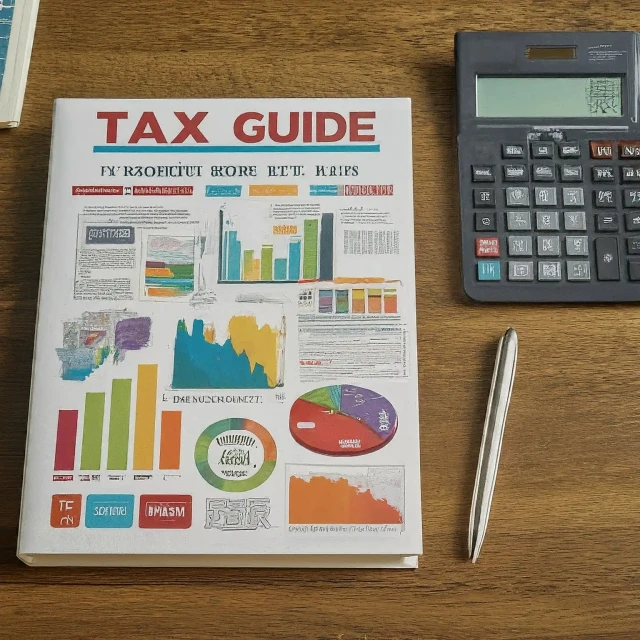Understanding and managing taxes is pivotal for small businesses in Australia. It's not just about following the rules but also about keeping the business financially strong. The Australian Tax Office requires businesses to pay Income Tax, GST, PAYG withholdings, and FBT, each with its requirements and deadlines.
Key Challenges Faced by Small Businesses:
Compliance: Keeping up with changing tax laws can be tough. Not following the rules can result in serious fines.
Financial Management: Managing cash flow well is important to pay taxes on time. Bad planning can hurt the business.
Record Keeping: Good records are key for taxes but can be hard without a finance team.
It's not just about following the rules and regulations but also about discovering new chances for development and ensuring the long-term success of your business in the competitive Australian market.
The Australian Tax Office (ATO) and Its Role for Small Businesses
The Australian Tax Office (ATO) plays a role in collecting money for the Australian government. It manages the tax and retirement savings systems that fund important services for Australians. Small businesses can benefit greatly from the ATO's assistance. They provide a wide range of resources, such as guidelines on tax obligations and tools to calculate taxes. Additionally, they offer services that make it easier for small businesses to comply with tax regulations and report their finances. The ATO even offers educational programs and support services to help small businesses understand their tax responsibilities and fulfil them successfully.
Key Taxation Types Affecting Small Businesses
Income tax is a type of tax that small businesses must pay on their profits.
2. Goods and Services Tax (GST)
GST is a tax of 10% that is added to the price of most goods, services, and other items sold or used in Australia.
3. Pay As You Go (PAYG) Withholding
PAYG withholding is a system where businesses take out tax from their payments to their employees and certain businesses.
FBT is a tax employers must pay on certain employee or family benefits.
Tax Filing Procedures and Due Dates
To file your taxes, you must fill out and send different forms and reports showing your business's financial activities for the year to the ATO.
Here are the key steps:
- Get an Australian Business Number (ABN) and other necessary registrations like GST or PAYG.
- Keep accurate records of all your transactions, income, and expenses.
- Prepare your tax return by figuring out your taxable income, how much tax you owe, and reporting your GST, PAYG, and FBT responsibilities.
- Send your tax return by the deadline, which changes based on your business type and GST registration status.
Usually, you have until October 31 to submit your income tax return if you're doing it yourself, but this can be extended if you have a tax agent helping you.
Starting a small business in Australia requires following a few important steps to ensure that you comply with tax laws and regulations.
Steps For Registering a Business In Australia
Step 1: Australian Business Number (ABN)
First, you must obtain an ABN, a unique 11-digit number that identifies your business to the government. You can apply for an ABN for free on the Australian Business Register (ABR) website. An ABN is essential for various business activities like invoicing, applying for an Australian domain name, and registering for other taxes and services.
Step 2: Tax File Number (TFN)
Just like individuals have their TFNs, your business will also need one, especially if it's set up as a partnership, company, or trust. Sole traders can use their TFNs. The TFN is crucial for tax and superannuation purposes. You can apply for a TFN when registering for your ABN or through the Australian Taxation Office (ATO) if your business requires a separate TFN.
Step 3: Goods and Services Tax (GST)
If your business has a GST turnover of $75,000 or more ($150,000 or more for non-profit organisations), you must register for GST. Even if your revenue is lower than that, you still have the option to sign up for GST. You can complete the registration process online on the ATO website or seek assistance from a tax professional. Once registered, you'll need to include GST in your prices, issue tax invoices for your sales, and claim credits for GST included in business purchases.
Step 4: Pay As You Go (PAYG) Withholding
If you have employees or make payments to businesses that don't provide an ABN, you'll need to register for PAYG withholding. This involves withholding tax from your payments and sending these amounts to the ATO. You can register for PAYG withholding online on the ATO website or by directly contacting the ATO.
By following these steps and fulfilling your tax obligations, you can ensure that your small business in Australia operates legally and smoothly.
To determine which taxes apply to your business, take into account the following factors:
1. Your business structure, whether it's a sole trader, partnership, company, or trust, will impact your taxes and superannuation obligations.
2. The type of activities your business engages in will determine if you need to register for Goods and Services Tax (GST), Pay As You Go (PAYG) withholding, Fringe Benefits Tax (FBT), and other applicable taxes.
3. Your annual turnover will also play a role in your GST registration requirements and may influence other tax obligations you have.
4. It's advisable to seek guidance from a tax professional or use resources provided by the Australian Taxation Office (ATO) to understand your specific tax obligations better.
Income Tax

Sole Trader: Your business income is combined with the income reported on your tax return. Key deadlines include lodging your return by October 31st (or May 15th with an accountant). Deductions for business expenses apply.
Partnership: Each partner reports their share of the partnership income on their tax return. Partnership agreements dictate profit-sharing and potential tax benefits.
Company: The company pays tax (currently 30%), not individual shareholders. Lodge a company tax return by the lodgement due date (depending on company size). Company-specific deductions apply.
Deadlines & Reporting:
Lodgement Deadlines: Stay on top of key dates! The Australian Taxation Office (ATO) website provides specific deadlines based on your structure and lodgement method.
Record Keeping: Be meticulous! Maintain proper income, expenses, and assets records for at least five years.
Payment Deadlines: Remember, income tax is not always "pay as you go." Familiarise yourself with relevant payment deadlines to avoid penalties.
Deductions & Concessions:
Good News: Expenses incurred to generate income are often tax-deductible! Common deductions include rent, salaries, marketing costs, and depreciation.
Seek Advice: Understanding complex deductions and concessions can be tricky. Consider consulting an accountant to maximise your deductions and claim applicable tax benefits.
The Goods and Services Tax (GST)

Let's break it down:
Registration:
You must register for GST if your GST turnover (combined income from all business activities excluding GST itself) exceeds $75,000 in 12 months or is expected to do so within the next 12 months. This applies to all business structures, including sole traders, partnerships, and companies.
How it Works:
- Collecting GST: When you register, you charge GST on most goods and services you sell (unless exempt). The rate is currently 10%. You collect this amount from your customers and hold it in trust for the Australian Tax Office (ATO).
- Reporting and Paying: Regularly (usually quarterly), you lodge a Business Activity Statement (BAS) with the ATO. This report details the GST you collected and the GST you paid on your business expenses. Based on this statement, you either pay the ATO the difference if you collected more GST than you paid or receive a refund if you paid more than you collected.
- Deadlines: BAS lodgement and payment deadlines vary based on your business size and lodgement method. Check the ATO website for specific deadlines applicable to you.
Remember:
- Input Tax Credits: You can claim GST paid on your business expenses against the GST you collect, reducing your overall GST liability.
- Record Keeping: Maintain proper records of your sales, purchases, and GST amounts for at least five years.
- Penalties: Failing to register, lodge returns, or pay GST on time can incur penalties.
PAYG: Understanding Your Payment Obligations

1. PAYG Withholding for Employees:
If you employ someone, you generally act as a tax collector, withholding a portion of their salary and remitting it to the ATO. Here's how it works:
- Calculating Withholding: Use PAYG withholding tables the ATO provides based on your employee's salary and tax information.
- Payment and Reporting: Deduct the withheld amount from their wages and pay it to the ATO electronically through Single Touch Payroll (STP). This happens at regular intervals throughout the year.
- Deadlines: STP reporting deadlines usually align with your salary payment cycle. Always verify and adhere to specific deadlines to avoid penalties.
2. PAYG Instalments for Other Income:
PAYG isn't just for employees! If you earn certain types of business income (e.g., rental income, interest, dividends), you may need to make regular prepayments of income tax through PAYG instalments.
- Eligibility: Check the ATO website to see if PAYG instalments apply to your income sources.
- Calculation: Estimate your yearly income tax and divide it into instalments due quarterly or monthly.
- Payment and Reporting: Use the ATO portal to lodge and pay your instalments on time.
Remember:
Accurate Records: Maintain detailed records of employee salaries, deductions, and PAYG payments for at least five years.
Superannuation: Don't forget about superannuation obligations for eligible employees.
Penalties: Failing to withhold, report, or pay PAYG on time can lead to penalties.
FBT (Fringe Benefit Tax)

While rewarding employees is essential, certain perks might trigger the Fringe Benefits Tax (FBT), an additional tax businesses pay on benefits provided beyond salary or wages. Let's understand when FBT applies and how to navigate it:
Triggering FBT:
FBT applies to various benefits offered to employees, their associates, or former employees. Common examples include:
- Loans: Interest-free or concessional loans.
- Entertainment: Tickets to sporting events or concerts.
- Discounts: Providing goods or services at significantly below-market value.
Important Note: This list is not exhaustive. Always consult the ATO website or a tax professional to understand what constitutes a fringe benefit.
Calculating and Reporting:
If you provide an FBT-liable benefit, you need to:
- Calculate the taxable value: This involves applying specific formulas or methods determined by the type of benefit.
- Gross-up the value: Increase the taxable value by a specific percentage (currently 47%) to reflect the income tax your employee would have paid if they purchased the benefit.
- Pay FBT: Calculate the tax amount by multiplying the grossed-up value by the FBT rate (currently 47%).
- Report and lodge: Prepare and lodge an FBT return with the ATO annually.
Remember:
- Exemptions and Concessions: Certain benefits might be exempt from FBT or have concessional tax rates. Check the ATO website for details.
- Record Keeping: Maintain accurate records of benefits provided and their taxable values for at least five years.
- Penalties: Failing to comply with FBT obligations can lead to penalties.
What are the other Obligations
What is Superannuation?
Superannuation, often called "super," is a compulsory contribution system designed to help employees accumulate retirement savings throughout their work. You must contribute a minimum percentage of your employees' eligible earnings towards their super fund as an employer.
Contribution Rates:
The current minimum Superannuation Guarantee (SG) contribution rate is 11%, and it's set to increase incrementally to 12% by 2025. This percentage applies to eligible employees (generally, those aged 18 and over working more than 30 hours per week).
Responsibilities:
- Identify Eligible Employees: Determine which employees qualify for super contributions based on age and working hours.
- Choose a Super Fund: Offer eligible employees the choice of their preferred super fund (or use a default fund if they don't choose).
- Make Timely Contributions: Pay super contributions electronically quarterly by the due dates. Use Single Touch Payroll (STP) to streamline reporting and payment.
- Keep Records: Maintain accurate records of employee contributions and super fund details for at least five years.
- Report and Notify: Lodge annual reports with the ATO and notify them of any changes to employees' super details.
Importance of Keeping Proper and Maintained Financial Records
By keeping good records, you can see how your business is doing financially, create financial statements, determine where your money is coming from, keep tabs on expenses you can deduct, and ensure you're paying your taxes correctly. The ATO says you should keep records for five years, starting from when they were made or when transactions were finished, whichever is later.
Your financial records should have info about all your sales and purchases, payment details, financial statements, tax info, and any other transactions that matter to your business. Using accounting software can make this process easier, giving you simple ways to track your financial info accurately.
Useful Online Resources:
Don't underestimate the power of free resources! Here are some valuable tools to bookmark:
- Australian Tax Office (ATO): The ATO website offers information, guides, and tools specifically tailored for small businesses. Explore ato.gov.au for helpful resources like calculators, checklists, and interactive guides.
- Business.gov.au: This government website provides comprehensive information on starting and running a business in Australia, including a dedicated section on taxes and financial obligations.
- Industry Associations: Many industry associations offer resources and support for their members, including tax-related information and seminars. Explore your industry's association website for potential benefits.
Conclusion:
Don't forget that managing taxes and finances is a continuous process, not a one-time event. Keep yourself updated! Make it a habit to stay informed about any changes in regulations and deadlines regularly. Sign up for ATO notifications and maximise the resources mentioned earlier.
Key Points:
- It's essential to comprehend taxes and finances for the success of your business.
- Select the appropriate business structure and stay aware of its tax consequences.
- Seek professional advice and use online resources to navigate complexities.
- Keep precise records and meet deadlines to avoid facing penalties.
Take Action:
1. Evaluate how much you know and how comfortable you feel about taxes and finances.
2. Check out the listed resources and pinpoint areas where you might need more help.
3. Consider contacting a professional accountant or tax advisor for customised advice.
Remember, taking control of your financial obligations today empowers you to make informed decisions and pave the way for a thriving business tomorrow. Don't hesitate to seek help and build a strong foundation for your entrepreneurial journey!



